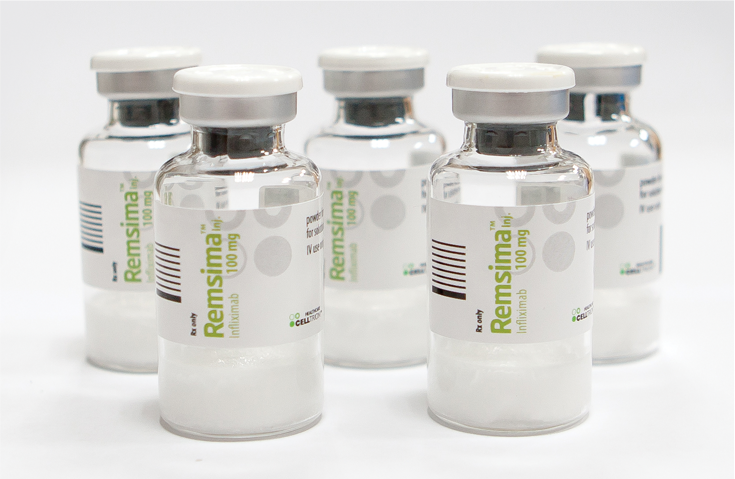Biosimilars underused in rheumatoid arthritis on the NHS - experts

Experts are calling for increased use of biosimilars in rheumatoid arthritis on the NHS, saying that the therapy should be introduced earlier in the disease pathway.
Celltrion was the first company to get a biosimilar of MSD’s Remicade (infliximab) approved in Europe, but uptake of its cheaper near-copy along with competitors from the likes of Samsung Bioepis has been patchy on the NHS.
Speaking at the NHS Health and Care Innovation Expo, HoUng Kim, Celltrion’s head of strategy and operations, called for the NHS to lower its threshold in disease activity before biologics such as Remicade and its biosimilars can be used.
Backed by other experts in the field, Celltrion pointed out that the disease threshold where patients are eligible to receive biologic treatment in the UK is 5.1 on the scale known as DAS-28, compared with 3.2 in other European countries.
The percentage of patients who are treated with an anti-TNF drug such as Remicade or its biosimilars is 24% or higher in countries such as Italy and France – but only 15% in the UK.
They argued that despite NICE acknowledging that appropriate biological treatments are clinically effective for all subgroups of RA patients, access to these therapies remains restricted in UK on grounds of cost-effectiveness.
Biosimilars provide a cheaper alternative to the originator drug and have been shown to be as safe and effective through a rigorous series of tests, analyses and trials.
Dr Ben Parker, Consultant Rheumatologist, Manchester University Hospitals, NHS Foundation Trust said: “A UK patient’s burden of disease must be much more severe before they qualify for biologic therapy, compared to a French patient. As a treating physician, I strongly believe that this inequality needs to be addressed so that our patients can realise the same benefits of early treatment as their European neighbours.”
This has been backed by the National Rheumatoid Arthritis Society and British Society for Rheumatology.
According to NHS’s recent savings data, NHS England saved £324 million in the last financial year by switching from using 10 higher priced medicines to better value biosimilars and generics.
Switching patients to biosimilars of these biologics led to significant cost savings: infliximab biosimilars delivered £99.4 million in savings, etanercept biosimilars delivered £60.3 million, and rituximab biosimilars delivered £50.4 million, for a cumulative savings of over £220 million in cancer and autoimmune diseases such as rheumatoid arthritis and inflammatory bowel diseases.
Kim said: “We have identified clear disparities in access to biologics across Europe. Patients diagnosed with less than severe disease activity should be able to get just as good and cost-effective benefit from biologics as patients with severely active disease, as this will help them achieve a better quality of life. With the proven savings, gained through the use of biosimilars, this could be a real opportunity for the NHS to address these concerning inequalities.”
In the coming weeks the biggest selling biological drug in the world, AbbVie’s Humira (adalimumab) is due to go off patent in Europe.
Four manufacturers – Amgen, Boehringer Ingelheim, Samsung Bioepis and Sandoz – have cheaper biosimilars approved and ready to hit the market in a range of uses including rheumatoid arthritis.
NHS officials have advised administrators not to enter any more contracts for Humira that extend beyond 16th October - the day that the Humira patent expires.











